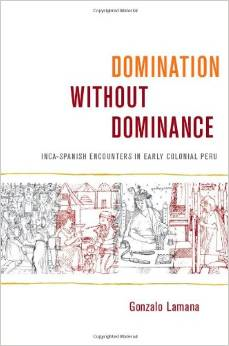Description
Offering an alternative narrative of the conquest of the Incas| Gonzalo Lamana both examines and shifts away from the colonial imprint that still permeates most accounts of the conquest. Lamana focuses on a key moment of transition: the years that bridged the first contact between Spanish conquistadores and Andean peoples in 1531 and the moment| around 1550| when a functioning colonial regime emerged. Using published accounts and array of archival sources| he focuses on questions of subalternization| meaning making| copying| and exotization| which proved crucial to both the Spaniards and the Incas. On the one hand| he re-inserts different epistemologies into the conquest narrative| making central to the plot often-dismissed| discrepant stories such as books that were expected to talk and year-long attacks that could only be launched under a full moon. On the other hand| he questions the dominant image of a clear distinction between Inca and Spaniard| showing instead that on the battlefield as much as in everyday arenas such as conversion| market exchanges| politics| and land tenure| the parties blurred into each other in repeated instances of mimicry.
Lamana’s redefinition of the order of things reveals that| contrary to the conquerors’ accounts| what the Spanairds achieved was a “domination without dominance.” This conclusion undermines common ideas of Spanish (and Western) superiority. It shows that casting order as a by-product of military action rests on a pervasive fallacy: the translation of military superiority into cultural superiority. In constant dialogue with critical thinking from different disciplines and traditions| Lamana illuminates how this new interpretation of the conquest of the Incas revises current understandings of Western colonialism and the emergence of still-current global configurations.






Reviews
There are no reviews yet.